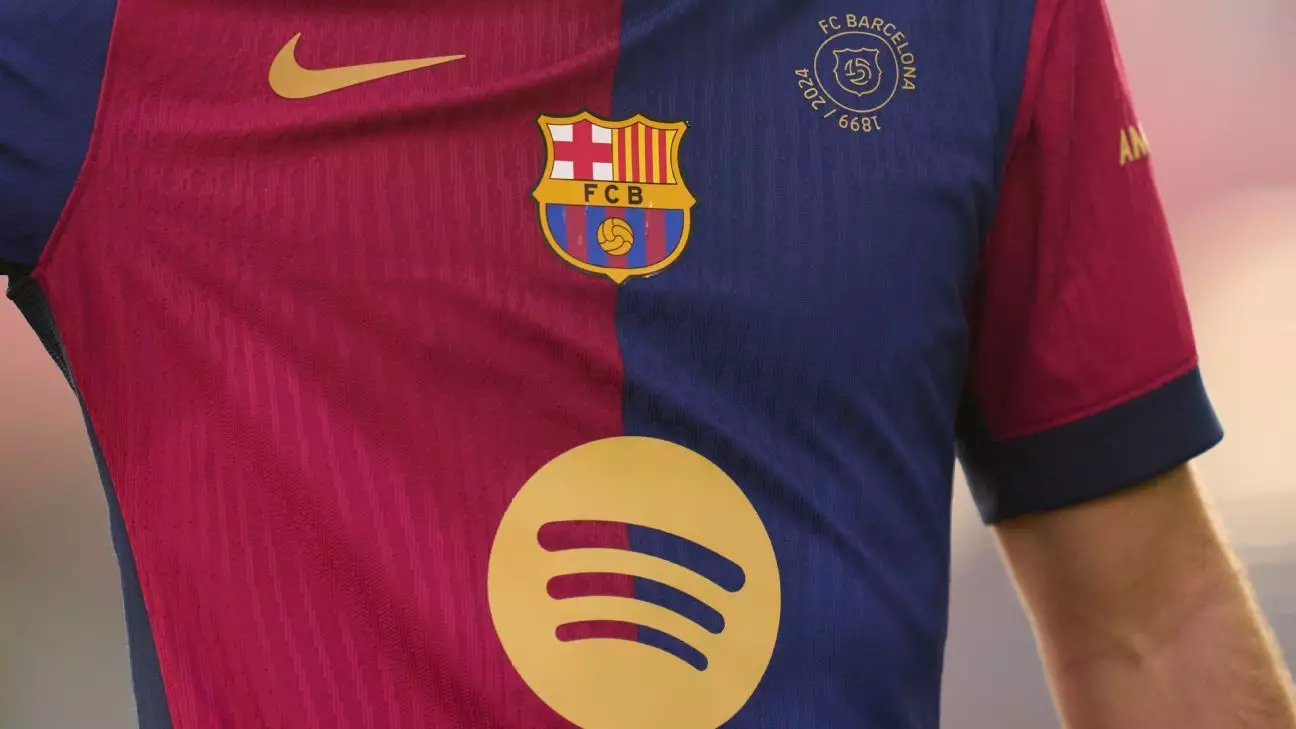Barcelona Football Club’s members, known as socios, recently gathered for an emergency assembly to ratify a groundbreaking long-term partnership with sporting giant Nike. The deal, hailed by club president Joan Laporta as the most substantial of its kind in sports history, represents a critical moment for the financially beleaguered club as it seeks to navigate a turbulent economic landscape. Although the specifics of the agreement remain shrouded in confidentiality, initial reports suggest it could be worth over €100 million annually, exclusive of bonuses. This substantial financial influx promises to provide much-needed respite to Barcelona’s ongoing fiscal woes.
Prescriptive optimism accompanied Laporta’s declaration that the agreement is a step towards economic recovery for Barcelona. The president articulated that the deal enhances their financial stability and aids compliance with LaLiga’s financial fair play rules. However, the terms of such agreements inevitably raise questions. While the financial benefits appear promising, they may not be an instantaneous panacea for the club’s systemic financial challenges. Reports indicate Barcelona is still over their LaLiga-imposed spending limit by approximately €60 million as of September. Therefore, the new Nike agreement, while important, might not suffice to align Barcelona with the financial parameters mandated by the league.
The complexities surrounding football contracts often obscure their true value. For instance, other major clubs have negotiated lucrative deals too, such as Manchester United’s £1 billion deal with Adidas in 2023, or Real Madrid’s €120 million annual revenue from their agreement with Adidas made in 2019. These comparisons, while illuminating, also serve to emphasize the ongoing competitive pressures Barcelona faces not only from its primary rivals on the field but also in securing sustainable financial backing off it.
Despite the resounding approval from the assembly—419 votes in favor against just 27 opposed—concerns were vocalized within the member base. Questions concerning the transparency of the figures involved, as well as the rising costs associated with merchandise, were prevalent. Member concerns reflect a broader desire for clarity in how financial decisions are enacted within the club, highlighting a transparent governance issue that demands attention.
Moreover, the involvement of agent Darren Dein in brokering the Nike deal prompted additional skepticism. While Laporta defended Dein’s role citing his connection to previous sponsorship arrangements, some socios remained wary of potential conflicts of interest. The overarching call for transparency denotes a crucial aspect of governance where member trust is concerned. At a time when the club is navigating potentially precarious waters, establishing robust communication channels with its members becomes more important than ever.
It is notable that the partnership between Barcelona and Nike dates back to 1998, indicating a long-standing relationship that transcends mere business. This historical context may lend credence to the notion that the brand understands the club’s cultural and competitive ethos. However, an over-reliance on long-time partnerships without constant reassessment of benefits may lead to complacency. The relationship, though beneficial thus far, necessitates continual strategic evaluation to adapt to evolving market dynamics.
Looking forward, Barcelona must tread cautiously as it grapples with the implications of this massive sponsorship deal. While the financial influx from Nike could serve as a bridge to stability, the sufficiency of the funds raised to meet ongoing challenges is uncertain. The club finds itself at a crossroads: it can either capitalize on this opportunity to restructure for long-term success or risk potential failures in executing a viable recovery strategy.
Furthermore, ongoing efforts to secure registration for players like Dani Olmo and Pau Víctor signal a pressing urgency for aligning finances and sport. As the window for these registrations looms, Barcelona must explore both legal avenues and innovative financial measures to adhere to LaLiga requirements. As members look to the leadership for action, the narrative that emerges in the wake of this deal may very well reflect the resilience or fragility of the club’s future trajectory.
While the agreement with Nike opens a chapter filled with potential, it also underscores the need for responsible stewardship, ensuring that Barcelona emerges stronger from its financial difficulties rather than entrenched in new challenges.

